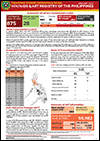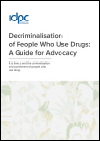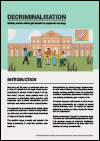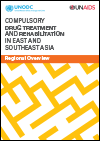What's New
Displaying results 331 - 340 of 4913

Resource | Publications,
The objective of this guideline is to present the complete set of all WHO recommendations and best practice statements relating to abortion. While legal, regulatory, policy and service-delivery contexts may vary from country to country, the recommendations and best practices described in this document aim to enable evidence-based decision-making with respect to quality abortion care.

Resource | Publications,
This guide is a joint effort of the Centers for Disease Control and Prevention (CDC), the UN High Commissioner for Refugees (UNHCR) and the World Health Organization (WHO). It includes new strategic approaches, guidance and innovations for TB prevention and care interventions in humanitarian settings. The guide focuses primarily on managerial/organizational aspects of TB interventions, and provides links to the most updated references for the clinical aspects

Resource | Publications,
The aim of the 2030 Framework is to provide the basis (reasoning) and concepts for multisectoral actions that countries can adapt to their context and implement with all stakeholders to achieve the targets of the End TB Strategy by 2030.
The target audience for the Regional Framework is all those with an interest in the promotion of TB prevention, control and care, including: ministries or departments of health (TB and non-TB); industry; the commerce, education and environment sectors; social sciences; health-care workers in the public and private sectors; civil society; and TB-affected communities. This Framework is applicable for all countries of the Western Pacific Region; however, priorities may differ in different countries based on their specific TB situation.

Resource | Fact Sheets,
In January 2022, there were 874 confirmed HIV-positive individuals reported to the HIV/AIDS & ART Registry of the Philippines (HARP) and were accounted to the total (95,212) reported cases since January 1984. At the beginning of this year; immunologic and clinical criteria were considered in identifying cases with advanced HIV disease (AHD). Thirty percent (264) had advanced HIV infection (143 based on immunologic criterion, additional 121 based on clinical criteria).

Resource | Publications,
This Guide for Advocacy is intended to be a user-friendly resource for people from all sectors who wish to understand the key objectives, principles and concepts relating to decriminalisation of drug use and how to advocate for it. Through three stages – Know it, Show it, Grow it – it outlines practical steps for developing strategies to advocate for decriminalisation, and offers tools that can be adapted and applied to plant the seeds for cultivating healthy, safe and inclusive communities.

Resource | Publications,
This briefing provides an overview of the key questions that drug decriminalisation advocates should consider to mobilise for and demand reform.

Resource | Videos,
Launch video of AIDS Data Hub new webpage on Elimination of Mother-to-Child Transmission (EMTCT) of HIV, Syphilis and Hepatitis B in Asia and the Pacific.

Resource | Videos,
The webinar provides a technical brief on the new global guidance on validation of Elimination of Mother-to-Child Transmission of HIV, syphilis & Hepatitis B (usually known as the Orange Book), and introducing the new EMTCT webpage on AIDS Data Hub website. The webinar also have a session that highlights the countries’ experience in moving towards the elimination agenda and in achieving validation of Elimination of Mother-to-Child Transmission.

Resource | Publications,
This report is a compilation of data provided or published by countries in the region on their national situation relating to compulsory drug treatment and rehabilitation. It also serves as a mechanism for monitoring progress towards meeting commitments agreed by countries in 2015 in Manila to phase out compulsory treatment and rehabilitation and to scale up the implementation of voluntary community-based treatment and services.

Resource | Publications,
On Zero Discrimination Day this year, UNAIDS is highlighting the urgent need to take action against discriminatory laws. In many countries, laws result in people being treated differently, excluded from essential services or being subject to undue restrictions on how they live their lives, simply because of who they are, what they do or who they love. Such laws are discriminatory—they deny human rights and fundamental freedoms.





